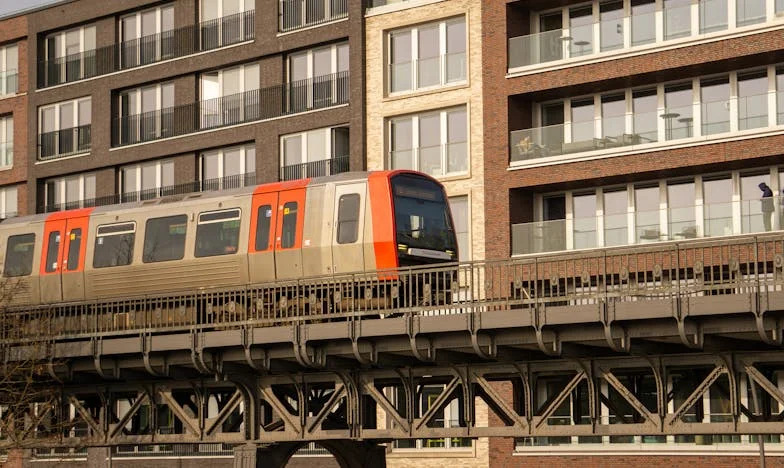When the Bus Broke Down, My Life Started Moving Again
“Grandma, I’m thirsty!”
Katie’s voice cut through the stifling heat, her small hand tugging at my sleeve. The bus shuddered, then lurched to a dead stop, the engine coughing out a final groan before falling silent. The driver muttered something under his breath and slammed his fist against the dashboard. Around us, the other passengers erupted into complaints—fans made from magazines waving frantically, tempers rising with the temperature.
I pressed my palm to the window. The sweaty glass only magnified how trapped we were, somewhere between our little community garden and home, in the middle of a baking August afternoon. My grandson, Luke, was slumped against my side, red-faced and silent, his Game Boy long since dead.
“Why isn’t the bus moving, Grandma?” he finally whispered, his voice small.
I swallowed hard, forcing a smile. “Looks like it’s just taking a little break, honey.”
The driver stood up, wiping sweat from his brow. “Folks, looks like we’re stuck for a bit. Engine overheated. Maybe an hour, maybe more. Sorry.”
Groans rippled through the bus. Someone cursed. A baby began to wail. I looked at my grandkids—both tired, both trusting me to fix what I couldn’t fix. My heart twisted.
Katie, only seven, began to cry. “I want to go home! Mommy’s waiting.”
I shushed her, but my patience was frayed. The truth was, so was my whole life. My daughter, Rachel, only barely trusted me enough to let me take the kids for the afternoon. After the way I’d let her down when she was young—a story I’d never quite found the courage to explain—every interaction felt like a test.
The air in the bus grew heavier. Someone opened a window, letting in a blast of humid air that smelled of hot asphalt and gasoline. “This is ridiculous,” a woman in the back muttered. “I have work in an hour!”
The driver shrugged helplessly. “Call someone if you can. There’s no cell signal out here.”
I glanced at my phone—one bar of reception, just enough to see Rachel’s last text flash across the screen: “Please, Mom, don’t be late.”
God, I thought, what will she say if I mess up again?
“Hey,” a tired-looking man in a faded Braves cap said from across the aisle, “you got grandkids?”
I nodded. “Yeah. Two.”
He smiled, but it looked forced. “Mine are grown. Barely talk to me now.”
I felt a pang of kinship and shame. “My daughter and I… we’re getting there.”
He looked away, and for a moment, the hum of the bus was filled with unspoken confessions and regrets.
The minutes dragged. The kids grew restless. My patience wore thin. I rummaged through my bag for a snack, came up empty. Katie started to whimper again. Something inside me snapped.
“That’s enough!” I snapped, sharper than I meant to. Both kids stared at me, wide-eyed. Instantly, I regretted it. “I’m sorry, sweethearts. Grandma’s just… tired.”
Luke nodded solemnly. “It’s okay, Grandma. I know you’re trying.”
His forgiveness stung more than any accusation. How many times had Rachel looked at me with that same quiet disappointment? The memory of her, sixteen, standing at the door, voice shaking—“Why weren’t you there, Mom?”—echoed in my mind. I’d always blamed my job, my exhaustion, my divorce. But the truth was simpler: I’d been afraid. Afraid of failing, so I stayed away.
Now, with my grandkids depending on me, I couldn’t run. I had to be present, even when I felt useless.
“Listen up, y’all!” the driver called. “I’m gonna walk to the gas station a mile up the road. Anyone want to come?”
A few people grumbled and gathered their things. I hesitated, but Luke looked up. “Can we go, Grandma? Maybe they have cold drinks.”
I took their hands—one in each of mine—and we stepped out into the shimmering heat. The road shimmered like a mirage, the only sounds our footsteps and the distant hum of cicadas.
For a while, we walked in silence. Then Katie spoke. “Grandma, did you ever get lost when you were little?”
I laughed, surprising myself. “All the time. And sometimes, I even found my way.”
Luke squeezed my hand. “I’m glad you’re here.”
Something in my chest unclenched. “Me too, buddy. Me too.”
At the gas station, the cashier took pity on us, handing out cups of ice water. The kids perked up, and I called Rachel, explaining what happened. She sighed, but her voice was softer than I expected. “Just get home safe, Mom.”
We waited outside, sharing a melted granola bar, and watched the sky turn rose-gold. I told them stories about their mom as a little girl—her stubborn streak, her wild laugh. The kids listened, rapt, and for the first time, I saw hope in their eyes when they looked at me.
A tow truck finally arrived for the bus, and a neighbor offered us a ride. The journey home was quiet, but the silence felt different—comfortable, almost peaceful.
That night, after the kids were asleep, Rachel sat beside me on the porch. She looked tired, but there was a gentleness in her eyes I hadn’t seen in years.
“Thanks for getting them home safe, Mom.”
I nodded, searching for words. “I know I messed up a lot when you were little. I wish I could change that.”
She squeezed my hand. “You’re here now. That matters.”
I stared out at the streetlights flickering in the dusk. For the first time in decades, I let myself believe that maybe, just maybe, I could find my way back.
Do we ever really get a second chance with the people we love? Or do we just have to make the most of the moments we’re given, even when life breaks down in the middle of nowhere?
